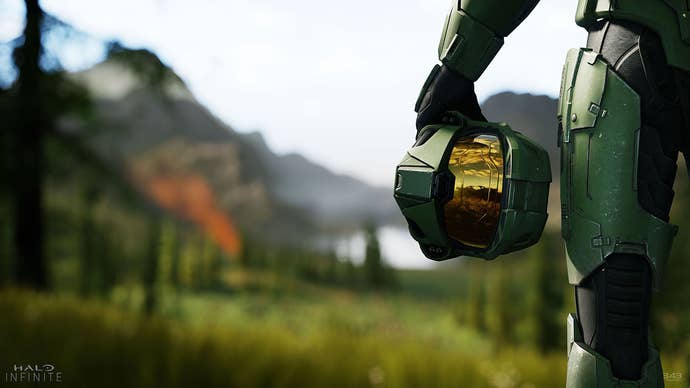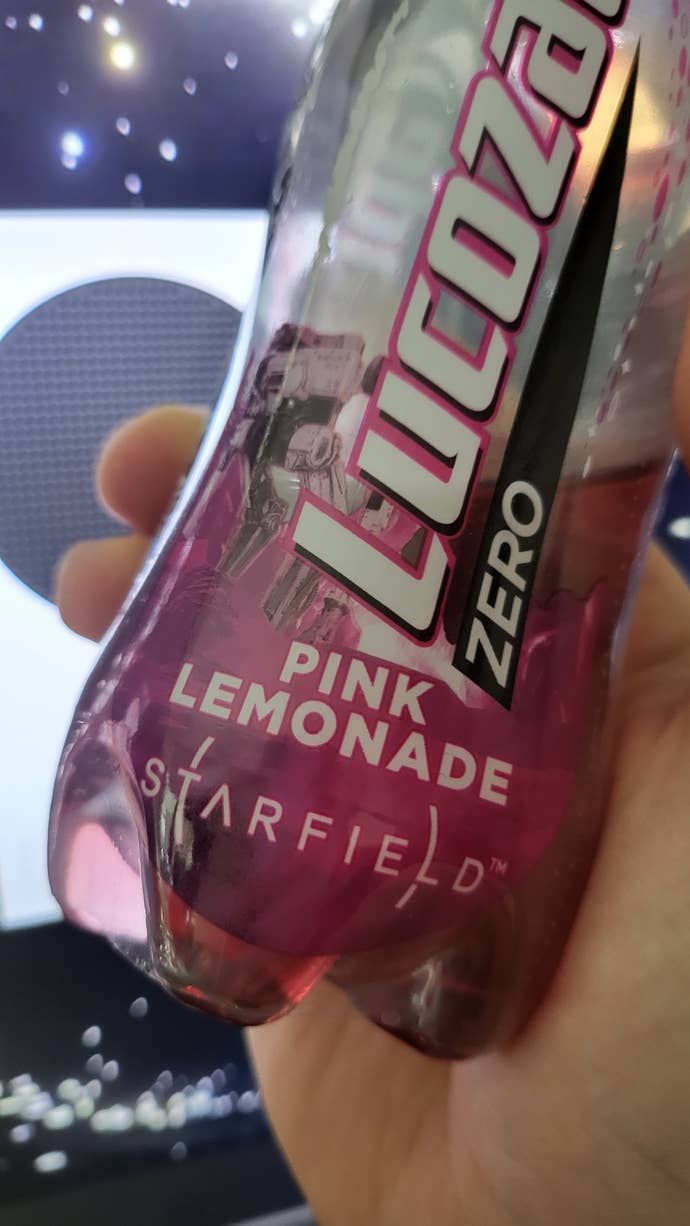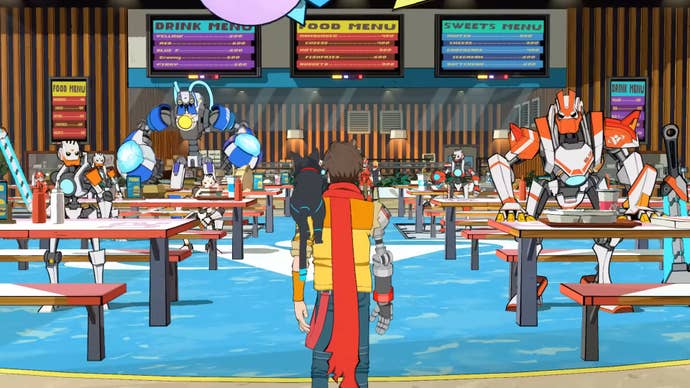Three years into a console generation that launched at the height of a crippling pandemic, a number of astonishing and unprecedented things are happening. Firstly Sony, the platform holder with the most acute supply issues during COVID-19 and the related chip shortage, is winning. This is not up for debate. It’s selling a lot more machines and, according to the best metrics we have, it’s releasing better games. It certainly has the biggest exclusives.
Xbox – despite having made some extremely good decisions at the start of this generation, having spent tens of billions acquiring studios and talent to leverage its IPs, and having had its machines be readily available in stores earlier than either model of PS5 – looks like it’s floundering. And it pains me to say this, because I genuinely think it started Generation Nine with a very solid offering and, it seemed, much promise for the years ahead.
But PlayStation is, insurmountably it seems, the more respected brand. That’s a tough kraken to slay from a neutral position, but considering everything that has dented the reputation of Xbox – from RROD to the litany of stupid decisions fronted by Don Mattrick that I won’t bother recounting – it’s hardly surprising that the USS Redmond has been circling the harbour for twenty years. Sony’s biggest sin over the same span of time can be summed up as hubris, rather than incompetence. Phil Spencer, Microsoft’s super chill head of gaming and jackets, has made a valiant effort to steady the ship (a ship he found less than seaworthy, because it was a smouldering pile of ash halfway up the side of a volcano), but a string of setbacks has seen Xbox, until recently perceived as being poised for a huge comeback, drift back into choppy nautical metaphors.
Several flagship games have launched with technical issues. Key 360 era franchises are either limping along pushing out 7/10s (Halo, Gears) or are basically AWOL (Fable). The Bethesda acquisition is yet to yield a killer app: Arkane games remain niche curiosities that tend to do much better critically than they do commercially, and their latest effort, Redfall, is bombing on both fronts. Deathloop was on PS5 first due to a pre-signed agreement, as was Ghostwire Tokyo, Tango Gameworks’ supernatural digital tourism piece that failed to set the world on fire and also eventually arrived on Xbox in such a shoddy state that PS5 remains the best place to play it.


Bethesda Game Studios itself is bogged down with getting Starfield into a good place before launch, after much embarrassing delay. It’s obvious that key milestones have been missed: you can now buy Starfield tie-in Lucozade, but you won’t be able to buy Starfield itself for another four months. There are soft drinks advertising a game that won’t be available for what constitutes an eon in Marketing Time. Make no mistake, that’s a huge blunder. And a costly one.
There’s no such thing as a last roll of the dice for a trillion dollar megacorp, but Starfield sure feels like one. And, regardless of how well it does or what kind of state it arrives in, the perception that all of Xbox’s hopes now rest on one title is damaging. The fact it’s a title from a notoriously hit & miss studio when it comes to quality control? The pithy tweets write themselves. Again, it pains me to say it. I love Bethesda, and on paper, Starfield looks like the very game I’ve been dreaming about since childhood. I’m just not sure it can carry the fate of an entire industry in its cargo bay.
.jpg?width=690&quality=70&format=jpg&auto=webp)
Xbox’s troubled attempt to merge with Activision has been dominating headlines in the specialist press, so it’s easy to think that Spencer & Co. have been spending all their time on trying to bag Call of Duty for Game Pass, while their first-party offerings are left to stumble out of the door. Perhaps, though, with the deal seemingly killed by the UK government, they can now get back to the long-term project of returning the Xbox brand to the prestige it enjoyed in the 360 glory days. But this time without having to spend billions of dollars replacing a product that melts itself.
I still believe, as I did in 2020, that Xbox has a very solid offering. Game Pass continues to be an incredible proposition, especially for the sort of person who loves to discover new titles they wouldn’t necessarily have spent money on otherwise. The low barrier to entry they have with the Series S is still, I think, an extraordinarily good deal for the casual consumer, despite the bad press that the machine has been getting recently. PlayStation’s equivalents of both of these things have been a mixed bag: PS Plus’ extra tiers give players access to a huge back catalogue, but it rarely plays host to day one releases, and Sony hasn’t matched Microsoft’s policy of launching every first party game on the service, so loyal subscribers still have to shell out seventy quid for God of War, whereas the equivalent Xbox user will be getting Starfield as part of the service.
.jpg?width=690&quality=70&format=jpg&auto=webp)
The digital only version of the PS5 is a great idea: significantly cheaper than the disc version and with the exact same silicon. But they were like gold dust for a very long time, and the Series S is cheaper still, often on sale for Sod It, Why Not? money. Digital PS5s still hover around the £400 mark, which – while cheaper than their slotted brethren – is probably a bit rich for the kind of buyer who finds the PS4 perfectly adequate still and is also now having to budget for their daily electricity usage because the world has slid into the toilet.
Besides, it’s not like everything is rosy over at Sony Towers either. PSVR2 has failed to usher the format into the mainstream, and so VR remains a plaything of the rich with a library of curios and tech demos, which is the opposite of the intended outcome. PlayStation’s foray into PC publishing is not going swimmingly. Jim Ryan, Phil Spencer’s opposite number in the Sony ranks, came under fire last year for being a weirdo about abortion rights, whereas the most controversial thing about Phil Spencer is a gauche insistence on wearing pop culture t-shirts with suit jackets.
This is not to say that Sony’s pole position is unearned, or that it’s unclear why Xbox is lagging behind. PlayStation is without question the more prestige brand, has more and better exclusives, and is often the better place for multiplatform titles. Meanwhile, while Xbox has two great machines to offer, its games factory seems like it’s permanently spooling up. At almost three years into the gen, that’s a devastating position to be in. In another three years, we’ll be starting to wonder when the PS6 and Nextbox will be announced, and there’s an extremely non-zero chance that we’ll also be wondering where the hell Fable is.

It’s not all doom and gloom. A few weeks ago, PC Game Pass underwent a massive expansion into 40 new countries, potentially bringing untold millions into the Xbox fold via a subscription that’s perfectly positioned to catch those consumers who exist outside of the traditional Big Three markets. On the games side, the Beyonce-dropped Hi-Fi Rush proved that Microsoft still has the ability to shock and surprise us with a delightful reveal, harking back to the legendary conference flexes of the E3 era. Starfield will, no matter the myriad ways it will fall on its arse at launch, be an incredible game with a very long tail. Obsidian still has Avowed and Outer Worlds 2 left in the chamber, and that’s just the two projects we know it’s working on.
And though it’s now more or less wound down, the backward compatibility program has been a huge boon for Series X/S, with performance and fidelity boosts available for 360 era games that make this ageing millennial cry regular tears of joy at pristine renditions of the Fable trilogy, Oblivion, the original Assassin’s Creed, and Red Dead Redemption to name but a scant few. Xbox has an incredible back catalogue and enough talent in the roster to start winning again: we catch glimpses of it all the time. Perhaps we just need to give them another year.

I hope Xbox has a lot of meat to throw us on June 11, and that Xbox can move on from this year’s string of disappointments and into a brighter future. PlayStation fans should hope for the best too, because frankly we all benefit when there’s a strong Microsoft to keep Sony on their toes. There’s plenty of room in this industry for more than one ecosystem to flourish, and plenty of money sloshing around in the system to support multiple business models. Microsoft has created a great foundation for a low-barrier, flatly priced platform where innovative projects and artistic curiosities can find an audience alongside the tentpoles that keep it viable.
But while all the tentpoles have gotten lost in the post, time is running out to make the new Xbox ecosystem a viable one in the long term. So let’s hope that more Starfield gameplay isn’t the biggest news on June 11.

